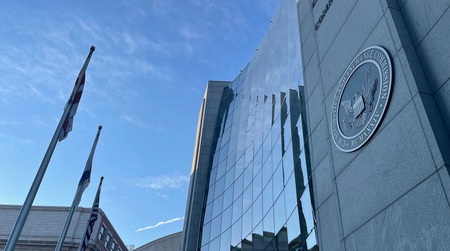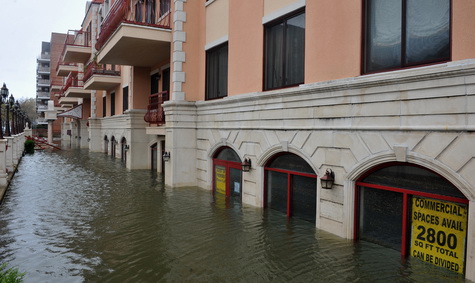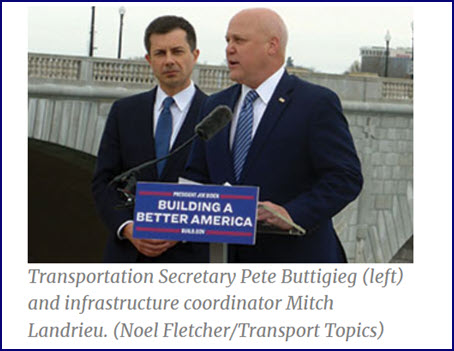Biden Administration Submits FY2023 Budget to Congress, Proposes Tax and Other Measures Impacting Real Estate

The Biden administration on Monday released its $5.8 trillion
FY2023 Budget, a package of spending, tax, and policy proposals that will face extensive congressional scrutiny and revisions over the coming months. The March 28 budget was accompanied by the Treasury Department’s “
Greenbook,” which details the Administration’s $2.5 trillion in tax increases on corporations, high-earning households, and certain business activities, including real estate investment. (
New York Times and
BGov, March 29)
Billionaire Minimum Income Tax
- The new budget proposes to tax the wealthiest households on their unrealized capital gains, including real estate. The so-called “Billionaire minimum income tax” would impose a minimum levy of 20 percent on a comprehensive tax base that includes both realized income and the unrealized annual appreciation of a taxpayer’s assets.
- The new tax would apply to future appreciation of assets and all unrealized, built-in gains at the time of enactment. The tax on pre-enactment, built-in gains would be collected over a 9-year transition period.
- Although marketed as a tax on “billionaires,” the proposal would apply to any taxpayer with $100 million or more in wealth. This initial high threshold arguably represents a first step towards a wealth tax regime with much broader application. The original income tax applied to the top 1/3 of one percent of the U.S. population and now applies to over 150 million American households.
- In certain cases, holders of illiquid assets like real estate could elect to defer the minimum tax until the property is sold, provided they pay an additional charge.
- The budget leaves many of the most difficult questions unanswered, including:
- How would the tax survive a constitutional challenge on the grounds that direct taxes must be apportioned among the states by population?
- Why would taxpayers continue to make patient, long-term investments, knowing that they could be taxed before the investment generates cash income?
- Will much of the tax burden fall on noneconomic inflationary increases in asset values?
- How will the IRS administer the tax without building a highly intrusive compliance system that is based on subjective valuation measures?
- Another new revenue proposal in the budget relates is to tax depreciation recapture at ordinary income rates. The provision generally would treat gain on real estate held for more than one year as ordinary income to the extent of cumulative depreciation deductions taken in tax years beginning after 2022. Depreciation recapture is currently taxed at a rate of 25 percent.
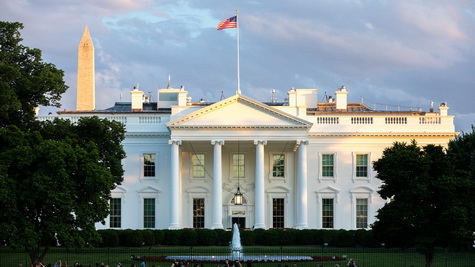
- The White House budget also includes tax proposals recycled from last year that failed to pass congressional budget negotiations, including:
- repealing the deferral of gain from real estate like-kind exchanges;
- taxing long-term capital gains at ordinary income rates;
- taxing carried interest in real estate partnerships as ordinary income; and
- treating transfers of property at death as realization events subject to capital gains tax.
Immediate Congressional Pushback
- The spending and revenue proposals faced immediate pushback on Capitol Hill by Republicans and Democrats, including Sen. Joe Manchin (D-WV), a key centrist who stated he opposes President Biden’s 20% minimum tax on unrealized capital gains for households worth at least $100 million. (CQ News, March 29)
- Manchin told The Hill, “You can’t tax something that’s not earned. Earned income is what we’re based on. Everybody has to pay their fair share, that’s for sure. But unrealized gains is not the way to do it, as far as I’m concerned.”
- Manchin also recently stated he is open to negotiating some limited remnants of the defunct Build Back Better (BBB) Act, with a focus on energy-related incentives, prescription drug costs ,and deficit reduction. (Business Insider, March 24)
Other Measures Directly Affecting Real Estate
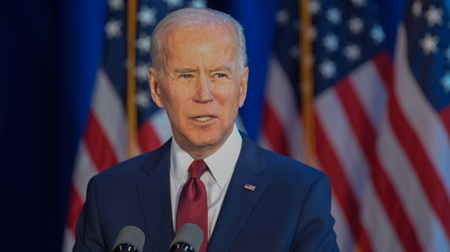
- Biden budget proposals impacting other aspects of The Roundtable’s 2022 Policy Agenda include:
- Energy and Climate – the president’s budget request outlines $44.9 billion for increased spending on several climate-related initiatives, yet does not address specific clean energy provisions that were part of last year’s BBB bill. Instead, a "deficit neutral reserve fund" is noted in the FY23 budget to accommodate a potential future deal on clean energy legislation with Democratic Sens. Joe Manchin (D-W.Va.) and Kyrsten Sinema (D-AZ). (E&E News, March 28 and Axios Generate, March 29)
- Affordable Housing – the FY23 budget seeks to ease the nation's affordable housing shortage with $50 billion in federal funding for housing construction and supply, including $35 billion for state and local housing finance agencies. (PoliticoPro, March 28)
- SEC Reporting Requirements – The Securities and Exchange Commission would receive $2.15 billion in the FY2023 budget proposal, an 11.4% increase from FY2021 (BGOV, March 28). The SEC has ramped up its activity recently with proposed rules on reporting requirements for investment advisers, climate risks and cybersecurity incidents that may have significant impacts for the real estate industry.
Issues outlined in The Roundtable’s recently released
2022 Policy Agenda in the areas of tax, climate, capital and credit and cybersecurity will be discussed during the April 25-26 Spring Meeting (
Roundtable-level members only) in Washington DC.
# # #
 The Biden administration on Monday released its $5.8 trillion FY2023 Budget, a package of spending, tax, and policy proposals that will face extensive congressional scrutiny and revisions over the coming months. The March 28 budget was accompanied by the Treasury Department’s “Greenbook,” which details the Administration’s $2.5 trillion in tax increases on corporations, high-earning households, and certain business activities, including real estate investment. (New York Times and BGov, March 29)
Billionaire Minimum Income Tax
The Biden administration on Monday released its $5.8 trillion FY2023 Budget, a package of spending, tax, and policy proposals that will face extensive congressional scrutiny and revisions over the coming months. The March 28 budget was accompanied by the Treasury Department’s “Greenbook,” which details the Administration’s $2.5 trillion in tax increases on corporations, high-earning households, and certain business activities, including real estate investment. (New York Times and BGov, March 29)
Billionaire Minimum Income Tax


